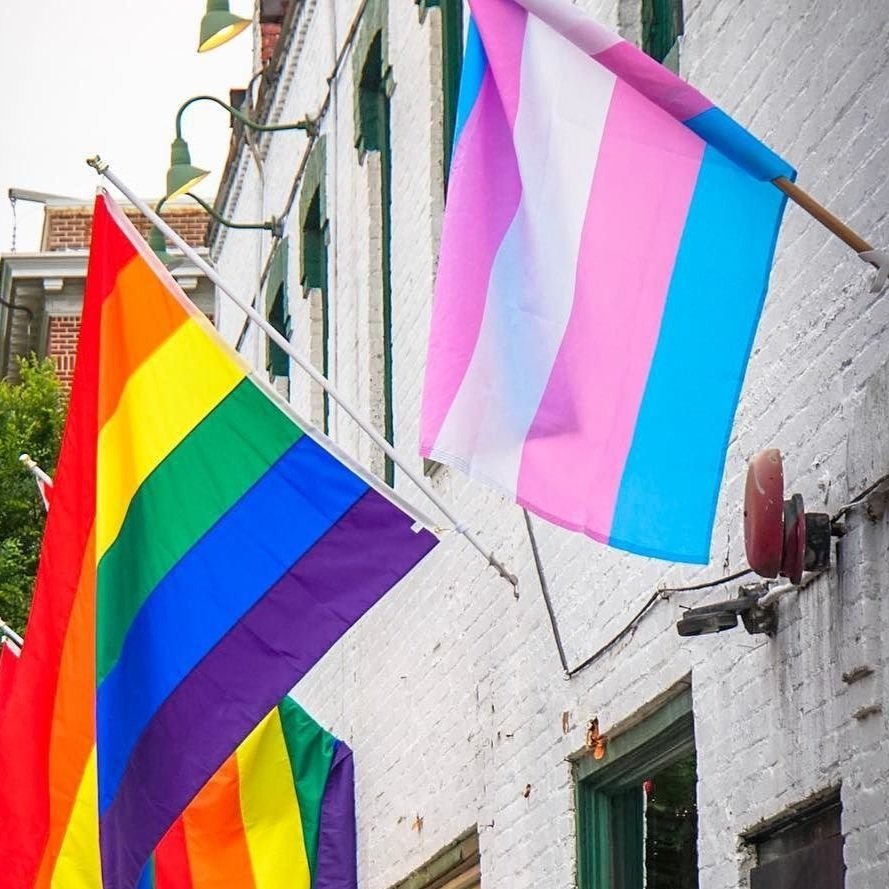Making Campus Safe for Trans Students: A Guide
WORDS BY THEO WARNER(HE/HIM).
Here is a short guide on how you can help trans people on (and off) campus and become confident in being a good ally!
Pronouns!
We all have them! It may seem like a simple thing, but respecting and using correct pronouns is one of the easiest ways to help trans people on campus. Check in with people if you want to be sure—a quick question is preferable than potentially misgendering someone. However, introducing yourself using your pronouns is a great way to let trans people know they’re in a safe and accepting environment and allowing them to disclose their pronouns without feeling singled out. As part of introductions, make sure to ask everyone for their pronouns, not just the people you think might be transgender. Not everyone is comfortable giving their pronouns, and that’s okay. The most important thing is normalising the practice of not assuming anyone’s pronouns—when you don’t know someone’s pronouns, default to ‘they/them’.
A short note on the singular ‘they’: Some people who don’t prefer binary pronouns like he/him or she/her use they/them pronouns! This can take a while to get the hang of it, but you’ve probably been using the singular ‘they’ forever without even noticing it! For example, if someone at a party left some sunglasses behind, you might ask ‘Who left their sunglasses here? Well, I hope they come back. I wouldn’t want them to be without sunglasses.’ The singular ‘they’ has been in use for hundreds of years—it’s nothing new!
Mistakes happen!
Sometimes you might slip up and use the wrong name or pronoun. It doesn’t have to be a big deal. The most important thing is to correct yourself and move on. No need to profusely apologise and draw attention to it.
Stand up for trans people.
If you are a cis (non-trans) person, it is important that you use your voice to uplift and support trans people and educate others so they can do better. When you notice disparaging, offensive, or discriminatory behaviour, challenge it. Correct others when they misgender or deadname a trans person, educate those with more conservative or outdated views, and support trans people who may not be able to speak up for themselves. Learn about anti-trans legislation such as the Religious Discrimination Act here in Australia, or anti-trans bills overseas in places such as the U.S. (e.g. Texas) and the UK, and use your voice to protest them.
Research!
A great way to support trans people is to educate yourself. Trans people are often bombarded with questions about their transition or pronouns or “the surgery”. Some of these questions may be offensive and some may just be repetitive, but you should never expect someone to educate you when you could easily educate yourself.
Here are some great resources to start with:
The Pronoun Lowdown by Nevo Zisin, a trans non-binary author from Naarm.
What’s the T? by Juno Dawson, a trans woman from the UK.
Many websites also have a variety of resources for allies:
Flinders University
Minus18
Transcend Australia
SHineSA
TransHealthSA
Trust and Respect
There is no universal trans experience: everyone is different. Listen to the trans people in your life and around you to learn their preferences and the best ways to support them. Respect transgender people’s autonomy and decisions—we reserve the right not to disclose or provide any information that we don’t want to. If you’re told that a line of questioning or something you’ve said is inappropriate, respect that and move on.
A good rule to live by—if you wouldn’t ask a non-trans person that question, don’t ask a trans person. Surgeries, medical procedures and bodies often become the largest focus on transgender people—understand that it can be uncomfortable to have people assume they’re entitled to such personal information—you’re not owed that.
Be thoughtful about the media you consume.
Trans people have a long history of being misrepresented and mistreated in the media—as victims, as punchlines, and as villains. Ask yourself: are trans people being represented in what I’m watching? How are they being represented?
For a more in depth discussion and timeline of this kind of representation, I highly recommend the video essay Tracing the Roots of Pop Culture Transphobia.
Donate to organisations and support trans individuals.
If you can, donate to organisations that educate people and help transgender people with finding support.
Some Australian LGBT+ charities:
Black Rainbow *
BlaQ *
Transcend Australia
Minus18
Support a trans artist, musician, or creator, or donate to any local ‘GoFundMe’s or fundraisers for surgeries and other needed supports.
*Supports First Nations LGBT+ community
Get involved!
The trans community and the LGBT+ community as a whole is so welcoming and accepting of everyone—get involved here on campus! Learn about FUSA and the Pride Network’s Campaign To End Deadnaming, work with the Pride Network to advocate for LGBT+ students in your course, and try putting this guide to use in your classes and on campus.
EDITORIAL NOTE: This article has been reuploaded and was originally published in 2023.
